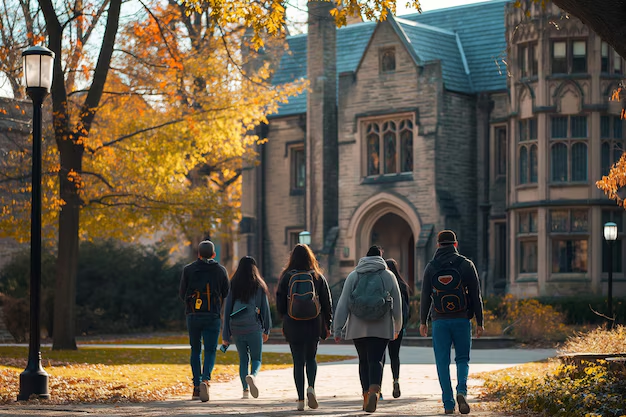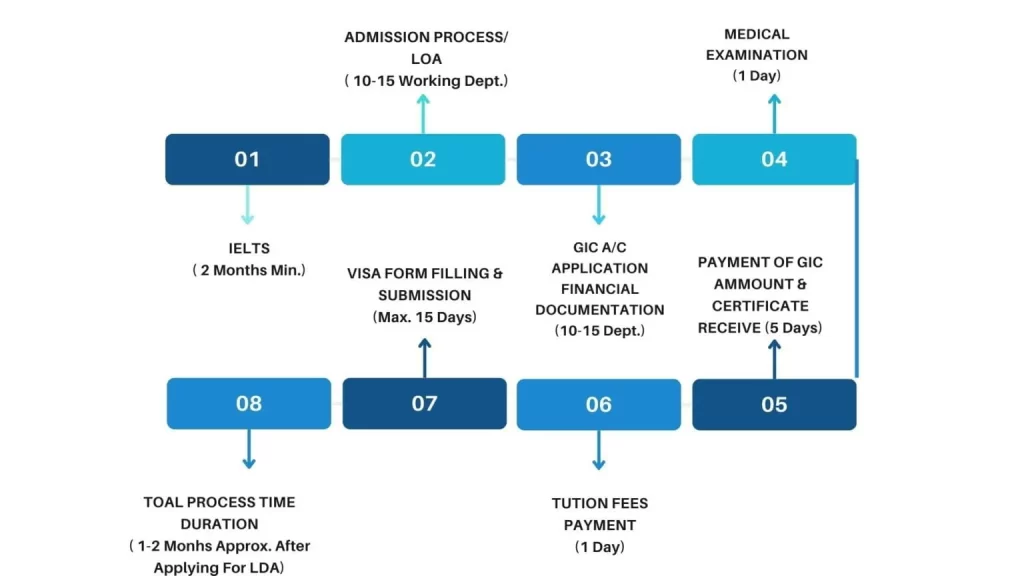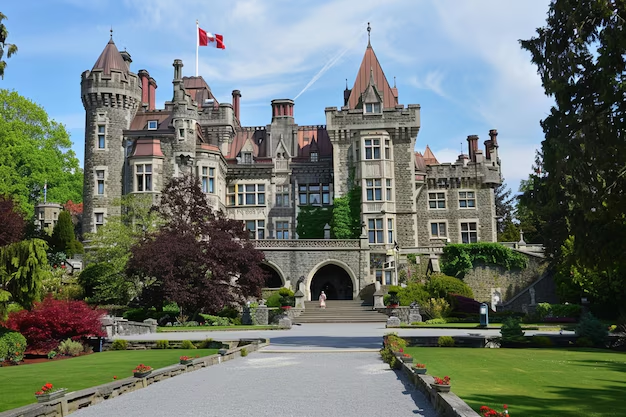
Expert Canada study consultant for Jammu, Delhi & Punjab students. Get free guidance on admissions & visas. Contact us today!
Specialized Guidance for Students in Jammu, Delhi & Punjab.
Get expert, personalized advice to turn your study abroad dream into reality.

Canada, the world’s second-largest country by land area, spans six time zones and covers over 9.9 million square kilometers. Moreover, its geography is strikingly diverse. From towering mountain ranges and dense forests to expansive prairies and over two million lakes, the natural beauty of Canada is unmatched. In the northern regions, tundra and permafrost landscapes highlight Canada’s unique climate and environment, making the country a fascinating place for students to explore.
Unlock your potential and embrace a world of opportunities—study in the Canada with Immi Talks, where your educational journey leads to a brighter future!
Why Immigrants Choose Canada as a Most Favorable Destination:

Studying in Canada is more affordable compared to several other popular destinations. On average, tuition fees and living costs range between CAD 20,000 and CAD 40,000 per year. However, the total cost depends on factors such as the program of study, the city of residence, and lifestyle choices. In addition, many institutions offer scholarships and financial aid options, which can significantly reduce overall expenses.
After graduation, international students may apply for the Post-Study Work Permit. Consequently, they gain the opportunity to work in Canada and build valuable professional experience. This experience is often a stepping stone toward long-term settlement and career advancement.
Experience Exceptional Service and Real Results with Us—Your Success is Our Commitment

Education:
Canada is known for its high-quality education system. It has internationally recognized universities and colleges offering a variety of programs. Major cities like Toronto, Vancouver, and Montreal are hubs for education and research. International students are also drawn to Canada for its welcoming atmosphere and post-graduation work opportunities.
Intakes
September, January and May are known as the main intakes. July and October intakes are limited.

In addition to its stunning geography, Canada is known for its vibrant cities and multicultural environment. Furthermore, the country prides itself on inclusivity, welcoming international students from across the globe. Consequently, newcomers find it easier to adapt, both academically and socially, which creates an enriching study-abroad experience.
Once a student secures admission to a designated Canadian institution, they can apply for a study permit. Importantly, this permit not only allows full-time study but also permits part-time work (up to 20 hours per week during semesters) and full-time work during scheduled breaks. Additionally, students do not require a separate work permit for these part-time opportunities, making it easier to gain professional experience and support living expenses.


Studying in Canada is more affordable compared to several other popular destinations. On average, tuition fees and living costs range between CAD 20,000 and CAD 40,000 per year. However, the total cost depends on factors such as the program of study, the city of residence, and lifestyle choices. In addition, many institutions offer scholarships and financial aid options, which can significantly reduce overall expenses.
Each program has its own eligibility criteria, application process, and requirements. The best option for an individual depends on their qualifications, circumstances, and immigration goals.
Ready to Turn Your Dreams into Reality? Let’s Make It Happen Together with Immi Talks—Your Journey Starts Here.
Student Testimonials
FAQ
How do I apply for a study permit (student visa) in Canada?
What are the entry requirements for Canadian universities?
Can I work while studying in Canada on a study permit?
How can I find accommodation as an international student in Canada?
Are there scholarships available for international students in Canada?
– Yes, Canadian universities and the Canadian government offer scholarships for international students based on academic achievement, research potential, and other criteria. Additionally, there are external scholarship programs.

